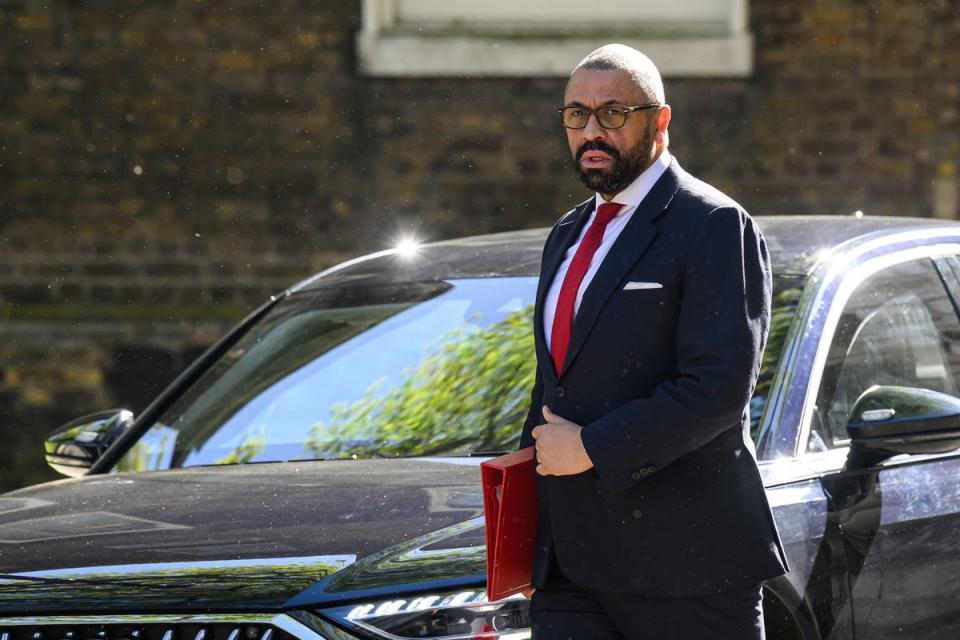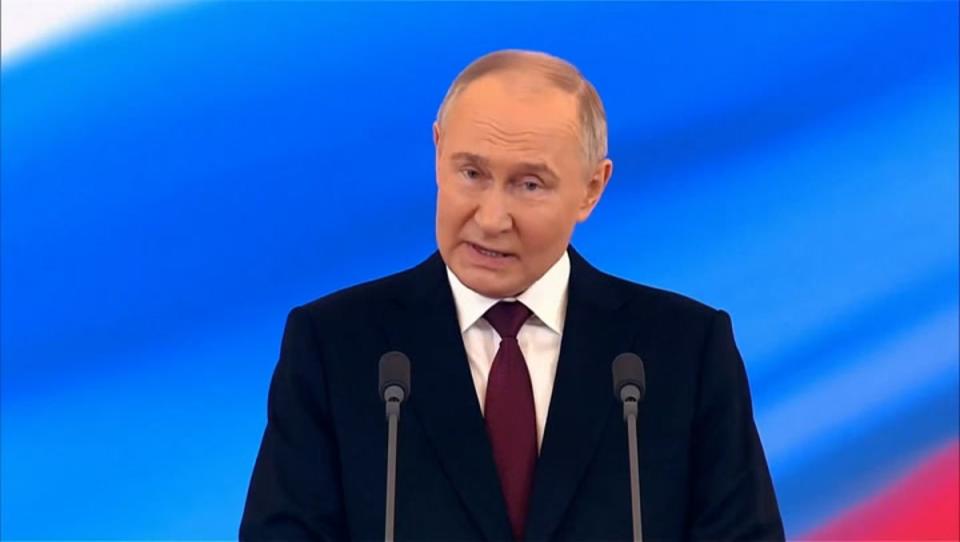Senior Russian diplomat expelled from UK over spying, says James Cleverly
James Cleverly has announced the expulsion of a senior Russian diplomat from the UK over allegations of spying.
The home secretary told the Commons that the Russian defence attache had been linked to an attack on a commercial property in London owned by a Ukrainian. Five people have been arrested over the incident.
Mr Cleverly said that the attack was part of “a pattern of suspected Russian activity across Europe”.

He went on: “Since the invasions, the actions and threats from Russia have only increased. These activities are designed by Russia to bring the war [in Ukraine] home across Europe.”
While investigations are ongoing and criminal court proceedings are under way, Mr Cleverly insisted that he had enough evidence to take action against Russia.
This included removing diplomatic status from Russian buildings in the UK, including its trade and defence building in Highgate.
He has also imposed restrictions on diplomatic visas for Russia, shortening the maximum length diplomats can be based in the UK.
The home secretary said: “In the coming days, we should expect accusations of Russophobia, conspiracy theories and hysteria from the Russian government.
“This is not new and the British people and the British government will not fall for it, and will not be taken for fools by Putin’s bots, trolls and lackeys.
“Russia’s explanation was totally inadequate. Our response will be resolute and firm.
“Our message to Russia is clear: stop this illegal war, withdraw your troops from Ukraine, cease this malign activity.”

Despite the new package of measures, there was pressure from the Tory benches for tougher actions in response to Vladimir Putin’s regime.
Conservative former minister Rehman Chishti questioned whether the UK would bring in legislation to seize Russian assets, adding: “It’s absolutely crucial we do everything we can to cut off Putin’s finances and make sure that he pays for the reconstruction of Ukraine.”
Mr Cleverly replied: “We have absolutely made it clear, we will be incredibly imaginative, we will work hard to ensure that the regime and the people that have funded the brutal attack on Ukraine are also those that fund the rebuilding of Ukraine, and we work with our international partners to make that’s a reality.”
SNP home affairs spokesperson Stuart McDonald said: “Really, what we need is new thinking, new doctrines, new institutions, in order to compete against threats that are ever-evolving, becoming more sophisticated, more aggressive, and also extremely well funded.”
Mr McDonald asked for a written statement to parliament on hostile disinformation on a “regular basis, informing members of where that threat is and what’s being done to meet it”.
Mr Cleverly said he would take on board the idea of regular updates because “disinformation and distortions of our democracy and society have a more direct and immediate effect in the UK”.
Labour former minister Sir Chris Bryant said: “Why is there still Russian oil coming into the UK? Why is Russia still exporting the same amount of oil as it did before sanctions were introduced?
“Why have we still not gone as far as the Americans and the Canadians? In seeking to not just freeze, but seize Russian assets, state assets, so that they can be used for the development of Ukraine.
“Why has the [former Chelsea owner Roman] Abramovich money still not gone to Ukraine? Because that would be more than £3bn more than the amount the UK has so far devoted.
“And finally, can he just say a word about Vladimir Kara-Murza, a man many of us have met here, very, very brave: we want to make sure that the UK government is doing everything in its power to make sure that he is protected in Russia.”
Mr Cleverly replied: “Sanctions evasion and the fight against sanctions evasion is by nature an international act. As I say, enforcement is predominantly a [Treasury] competency, and the international cooperation falls very much within the remits of the FCDO [Foreign, Commonwealth and Development Office] but of course, we all work to try and ensure that sanctions evasion does not happen.”

 Yahoo News
Yahoo News 
